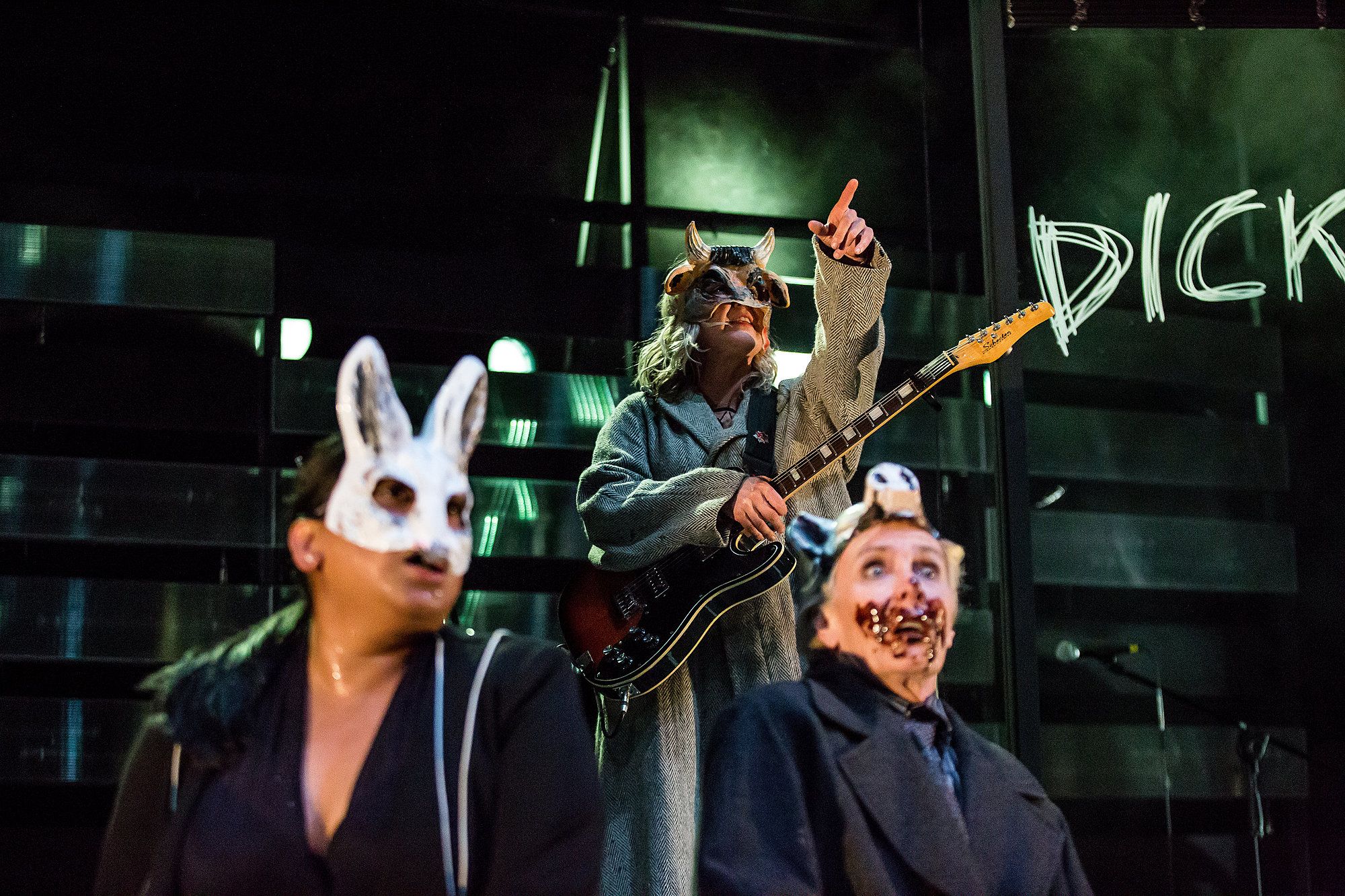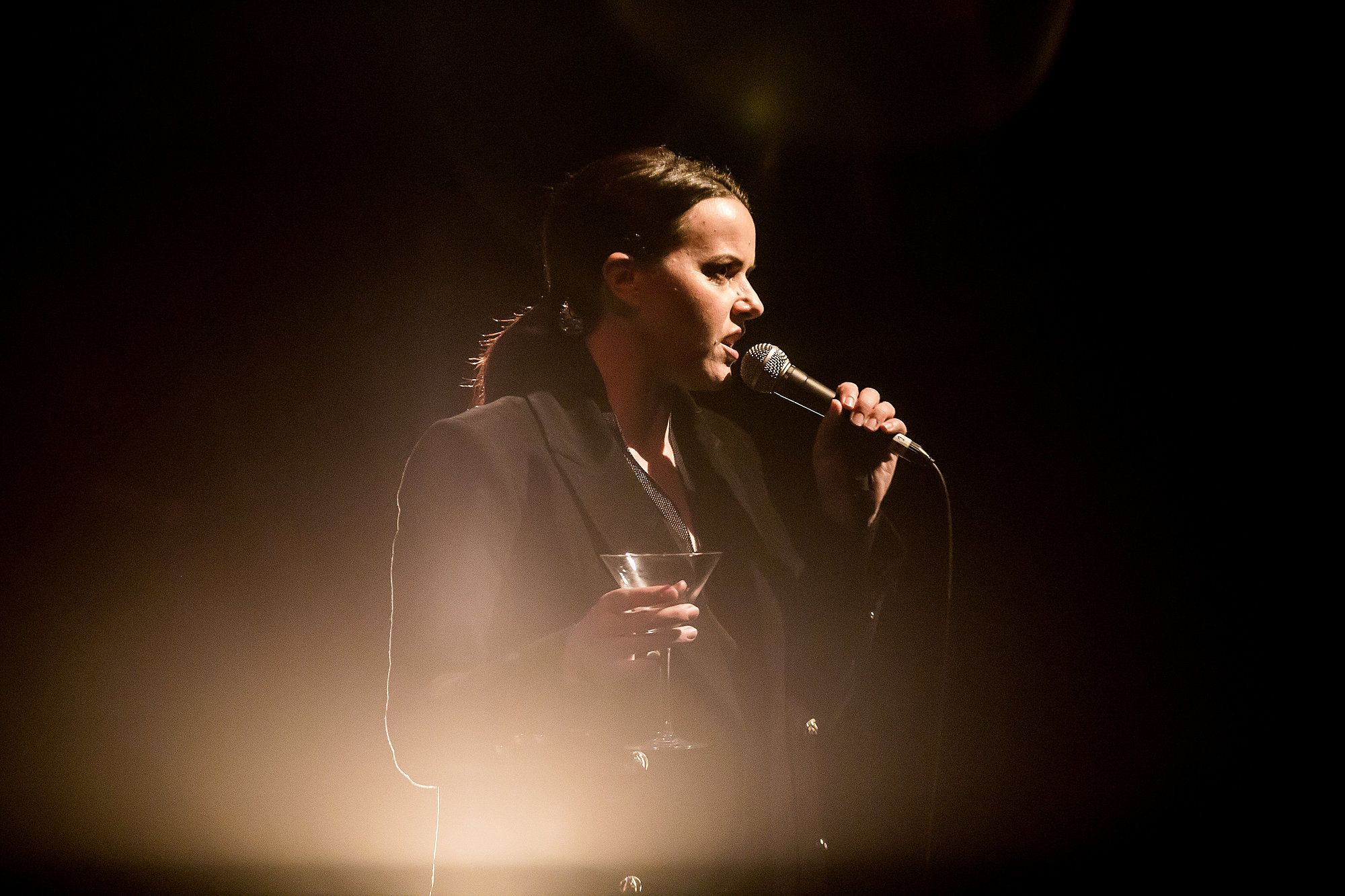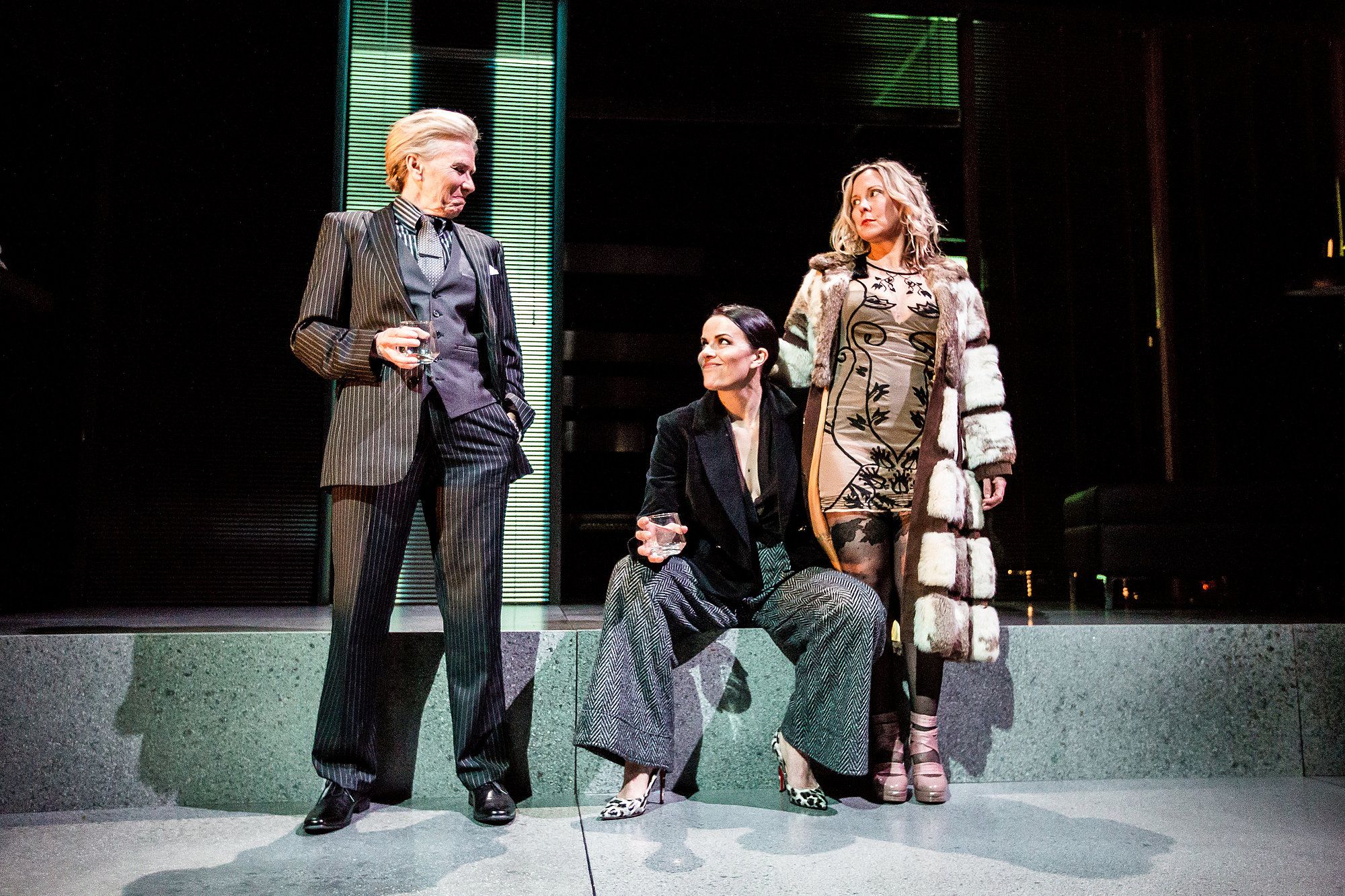Review: Boys Will Be Boys
Frances Moore reviews Silo Theatre's Boys Will Be Boys, and finds neither performance nor production stands up to the challenges put forth by the script.
Frances Moore reviews Silo Theatre's Boys Will Be Boys, and finds neither performance nor production stands up to the challenges put forth by the script.
I went into Silo Theatre’s production of Boys Will Be Boys feeling pretty angry and ready for a cathartic feminist experience. The same week this show opened saw the release of the Rugby Players Association’s report into the Chief’s Mad Monday celebrations and the alleged sexual assault of Scarlette. Unsurprisingly, the report proved itself to be an inside job, without a safe, open and fair process, and where everyone said they were very sorry without actually acknowledging that anything untoward had taken place.
The rage that carried me into Boys Will Be Boys could have been a rage felt on almost any given week in New Zealand - be it a sports commentator using ‘girl’ as an insult, an executive claiming women simply don’t want to be in leadership positions or reading the comments on Stuff.co.nz. It’s a state of affairs perfectly captured in the performance of our Minister for Women, Louise Upston, who proudly rejects the label ‘feminist’ and feels it isn’t her place to comment on the Chiefs scandal. The unspoken message is that we hairy armpit warriors need to calm down – we’re bad for business. With so much frustration in my feminist heart, Boys Will Be Boys should have been the show for me. It wasn’t.
Let’s get the good things about this production up front from the start. Melissa Bubnic’s script describes the experiences of women working in the ruthless world of currency trading. The text is layered with moments of everyday sexism, the impossible task of being ‘fuckable’ while not being seen as a slut and works towards a moment of violence and its aftermath that exposes the entrenched structures that so often see women lose against the status quo.
The set design by Rachael Walker is as slick and impressive as any Wall Street broker’s domain. Columns of metallic blinds set a corporate tone, while also providing a clear device for transitioning between spaces. Complemented with glass panes and leather office furniture, these surfaces reflected light and colour beautifully, allowing the audience to inhabit the world of the play without distraction. Rachel Marlow’s lighting design, with rolling coloured strips set behind the action to suggest trading stocks, creates a sense of everything being constantly appraised, valued and sold to the highest bidder.
The show opens with Amanda Billing delivering a crack-paced monologue before breaking into song, as the remainder of the cast act as her back up troupe. Billing’s opening lines were so hurried and lacking in diction that I could only grasp the meaning around the edges, only half-hear the acerbic commentary on the life of a female broker. This struggle was then reflected in the performance of the band. Aside from the exceptional playing of Elena Siljic on guitar, these impressive actors should not have been asked to double as musicians. Vocal harmonies were cagey, the percussive embellishments were off kilter and the visual picture was often unconvincing. It was an unsettled beginning that defined the performance to come.
A breakneck speed characterised almost all of the action as performers ran between positions, often struggling to get shoes and coats on and off in time. Singing, dancing, running and delivering a complex script could be a grand metaphor for the female condition – look we really can do it all! As Astrid reminds us, Ginger Rogers did everything Fred Astaire did, only backwards and in heels. However, the unconfident musical performances, the struggles with zips and heels suggested otherwise.
Billing plays Astrid, a broker who has actively decided to beat the boys at their own game. Abandoned by her childhood friend for being a girl, she has carried this rejection throughout her life, adopting traditionally masculine tropes of aggressive ambition while still trying to stay ‘fuckable’. Despite man-spreading up a storm, her performance was unconvincing. Billing speeds through her lines, often stumbling and with little variation in colour and tone. This uncompromising sprint through the text allows very little time to build relationships with those around her, and crucially, with the audience.
Her connection to her junior, Priya, performed by Vanessa Kumar, is lacking in chemistry or jeopardy. There is no sense of an evolving competition between the pair and no complex reflection on why Astrid would take the time to impart her ‘wisdom’ on her talented underling. The script gives room for Astrid to be confronted with how easily Priya is learning to mirror her mentor, highlighting the extent to which women compete with each other and, ultimately, punish each other. Without any tangible tension within the performance of this relationship, these themes are largely left unexplored. This similarly affects her interactions with Jodie Rimmer’s Isabelle, where the resonances between prostitute and broker that are explicitly stated through the script are never revealed through performance.
Where Billings wins is in her stints as a singer and especially in a sassy performance of the blues classic ‘I’d Rather Go Blind’. Here we can see that she is capable of delivering a playful, provocative performance, and believe Astrid capable of climbing to the summit of her industry while delivering a two-fingered salute to The Man.
Kumar’s Priya similarly lacks variation in her performance, with important moments often not given enough time to hit the audience where it hurts. Her transition from kitten heels to stilettos is not accompanied by a similar transformation in approach. I had the feeling that Kumar had the capacity to be more physically dynamic if allowed the space – and the time – to play. A pivotal scene, in which Priya takes control of some important clients, felt under-developed in terms of the shift of power between her and Astrid. While we see a cycle of abhorrent violence and shame visited upon Priya as she follows in Astrid’s footsteps, I’m left unable to account for why these clearly intelligent women behave the way that they do.
The fascinating contradiction between understanding a misogynistic system and fighting to be a part of it that lies at the centre of this script is unexamined by performances that are without power. Astrid bemoans that she wants more time – more time to play with the boys, more time to be included, more time to deny her gender, more time to play ‘their’ game and prove that she can win. In playing the game, Astrid and Priya both insist on their talent and their right to be there. It is a huge problem then that we don’t believe either character to be the players they’re constantly asserting themselves to be. Faltering in their performance choices, this crucially undermines our understanding of the messages of this play.
This failure is rather unfortunately highlighted by the brilliance of Jodie Rimmer as Isabelle, Lucinda Hare as Harrison and Jennifer Ludlam as Arthur. Each performer is a powerhouse of charisma, with Rimmer’s Isabelle being a deliciously compelling creation that provides the heart of the drama. Rejecting the roles of mother/whore this world demands of her, she instead questions each character in how they wield and yield to power, while refusing to be anyone’s saviour. She captures a sense of exhaustion that might come from being in the sex industry, and painfully reveals the danger and vulnerability of women in her position.
Lucinda Hare brings a seemingly effortless sense of physical comedy and perfect timing to the sympathetic role of Harrison – as much a victim of sexual politics as anyone in the play, despite the privileges that wealth, ethnicity and gender bring. Hare’s authentic and engaging performance of masculinity contained both a lovely sense of the ridiculous (when Harrison admits a burning and unlikely passion for the theatre) as well as a relatable desire for acceptance that drives his every action.
The equally dazzling Jennifer Ludlam is literally everyone’s boss both within the script and on stage. Misogynistic, cruel and unsettlingly funny, Ludlam was simply the most watchable thing on stage whether she was peeing against a wall or casually dismissing her own infidelity.
That’s the problem with Silo’s Boys Will Be Boys. That the strength and mastery of performance lay with those characters that also held the strength and mastery of power within the narrative left me feeling disappointed rather than outraged. It is a problem that partially comes from Bubnic’s script that in the end left me thinking, ‘yes, and?’ It was too easy for her characters to fall into old stereotypes. Astrid is the angry, humourless feminist; the young Priya is smart but naïve and too eager to please. These characters are dangerously without nuance. It is unfortunate that Harrison and Arthur are gifted stronger comedic moments, while Astrid spends so much time listing injustices while doing nothing to prevent them. This imbalance leads an audience to look forward to moments where Arthur and Harrison are around – to prefer their company, to unconsciously think that, let’s be honest, these two are way more fun to be around.
The themes and events of this play are not new. As an audience, if we take an interest in the news and what happens around us, we should have a reasonable expectation of what takes place in a macho environment. That these events still happen, that the play is predictable, that there is nothing to see in the Chief’s celebrations, is the point. In the programme notes, Roberts makes the comment that the play is important for allowing women to be unlikeable: ‘you see women being allowed to say and do these things that you don’t often get permission to do, as a female onstage or in storytelling.’
The freedom to swear, to talk about sex in all its ugliness, to be ambitious, to want money is a glorious liberation that’s unquestionably important to witness, and why the programming and performance of this play is so exciting. In the end such a freedom of expression feels hampered by performance choices that were too restrictive in an already suffocating world. Performers played the do-wop girl with too little real musicianship, and the pace of the production was beyond the technical capacities of some. The script’s requirement to fail the performance of masculinity became compounded by technical performance failures, resulting in a missed opportunity to bring a complex and disturbing script to life. It’s a shame, because a convincing performance of the freedom to be gross, sexual, ambitious et al. – for women to be more than just acceptably fuckable – might get all of us past knee-jerk reactions that strippers deserve to be sexually assaulted or that drunk girls don’t really mean no. Because believing what women say is everything.
Boys Will Be Boysruns at
Q Theatre, Auckland
from Thursday 8 September to Saturday 24 September
For tickets to and more information about Boys Will Be Boys, go here.




